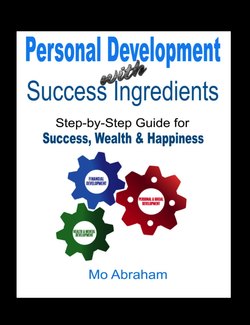Читать книгу Personal Development With Success Ingredients - Mo Abraham - Страница 14
На сайте Литреса книга снята с продажи.
Lifelong Learning
Оглавление‘If only I could have learned Chinese two years ago…’
‘If only I learned about investing when I was still in my early twenties…’
Lifelong learning is the ‘ongoing, voluntary, and self-motivated’ activity of knowledge for either personal or professional reasons. It not only enhances social inclusion, active citizenship, and personal development, but also self-sustainability, rather than competitiveness and employability.
Lifelong learning is pursued throughout life – learning that is flexible, diverse and available at different times and in different places. Lifelong learning crosses borders, go beyond traditional schooling and post-compulsory education. This definition is based on Delors’ (1996) four ‘pillars’ of education for the future.
1.Learning to Know – Mastering learning tools rather than acquisition of structured knowledge.
2.Learning to Do – Arming yourself for the types of work needed now and in the future including innovation and adaptation of learning to future work environments.
3.Learning to Live Together and with Others – Peacefully resolving conflict, discovering other people and their cultures, fostering community capability, individual competence and capacity, economic resilience, and social inclusion.
4.Learning to Be – Education contributing to a person’s complete development: mind and body, intelligence, sensitivity, aesthetic appreciation and spirituality.
Learning is unavoidable and happens all the time, however, lifetime learning is about creating and maintaining a positive attitude to learning both for personal and professional development. Personal development can improve your professional opportunities, and professional development can enable personal growth.
Lifetime learning can enhance your understanding of the world around you, provide you with more and better opportunities and improve your quality of life.
Lifelong learning can impart creativity, initiative and responsiveness in you thereby enabling you to show adaptability in post-industrial society through enhancing skills to:
•Manage uncertainty.
•Communicate across – within cultures, sub-cultures, families and communities.
•Negotiate conflicts.
•Boost your confidence and self-esteem.
•Make you less risk averse and more adaptable to change when it happens.
•Help you achieve a more satisfying personal life.
•Challenge your ideas and beliefs.
There should not be any reason for learning as learning, for learning in itself is a rewarding experience. It enables a more fulfilling life at any age.
Our capacity to earn is directly related to our willingness to learn. Being well educated is not necessarily the key to employment. Employers are looking for well-balanced people with transferable skills. You should be able to demonstrate that you are keen to learn and develop.
Putting the time in for extra learning brings its own rewards. We can get more personal satisfaction from our lives and jobs as we understand more about who we are and what we do. A more highly skilled and knowledgeable employee is an asset to any company and can lead to faster promotion with associated salary increases.
Whatever your life path or age, it's never too late to start and there are a number of benefits to continual personal and professional development.
Successfully changing career path in mid-life and spending time informally developing expertise is more common than ever, especially during rapidly changing market conditions. Most people still rely on succeeding in employment for their ability to earn a living. The more flexible we can be about our direction, the easier we make our lives. Our economy is shifting gradually towards short-term and part-time contracts with more flexible work-patterns.
Depending on job durability for earnings and promotion is not as feasible as it used to be. Because of work-life instability, more people of all ages are turning their hobby into a business idea. Continually following one’s passion outside of work hours can lead you to get paid for doing what you love, and typically you will develop business and other transferable skills as you go along until the point that you can delegate your least favourite jobs.
Continuous learning is a requirement for success, and the faster you learn the faster you can apply your new knowledge to improve your life as explained below under Improve Your Learning Skills where you can learn how to read fast and remember things.
